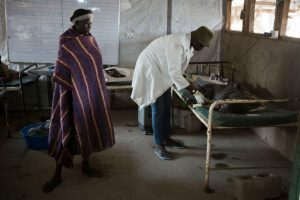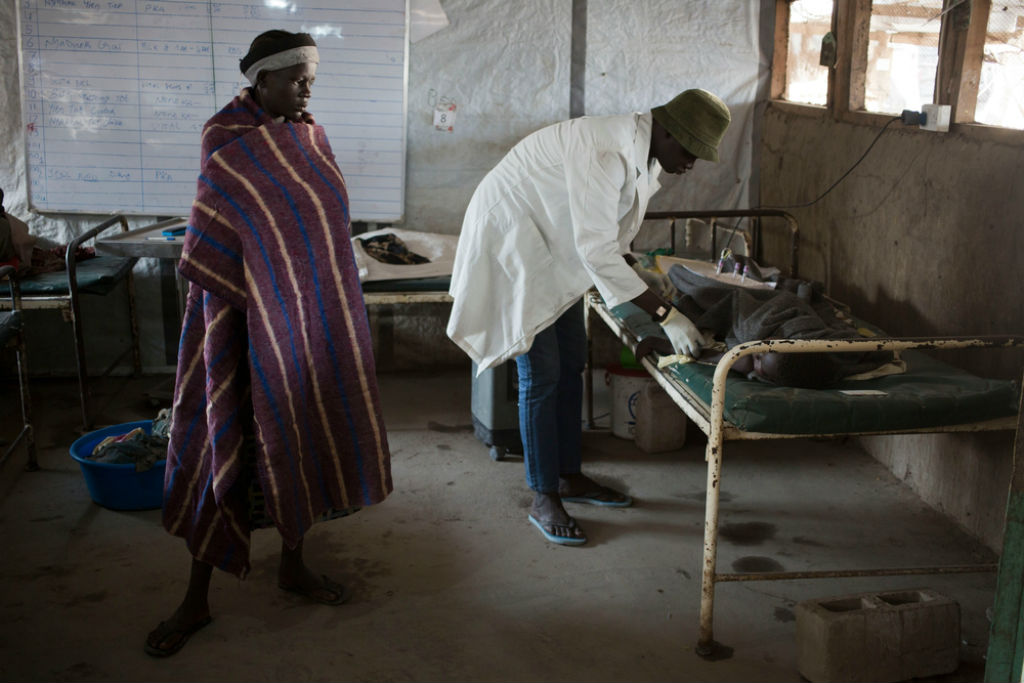
By Tito Gatkoi Kach Theng
Yemen, December 11, 2018 (SSNA) — Like many South Sudanese, I grew up in armed conflict and I had to go to school in different countries. I started primary school in Khartoum, Sudan´s capital, but my education there was interrupted by displacement, so I completed my schooling in Ethiopia. Later I joined Emma Secondary School in Leer, South Sudan.
Despite all the challenges of living in a foreign land, crammed in memories of conflict back home, my wish was to one day save lives. I always believed that through education, I would have an admirable career. I joined Maridi Health Science Institute in South Sudan to study clinical medicine and public health.
I was inspired to study clinical medicine because I wanted to help those affected by the armed conflict between north and South Sudan. The urge to help those in need motivated me and gave me the courage to look for opportunities to pursue it.
When I graduated from medical school in 2005, I decided to join MSF again, and started a new journey as a clinical officer in MSF hospital located in Leer. I had already worked with MSF as a nurse in Leer / Duar, Old fangak and Lankien between 1989 and 2002, against an outbreak of Kala azar – a parasitic disease with high fatality rates. Kala azar affects the internal organs, particularly the liver, spleen, bone marrow and lymph nodes.
Together with the team we worked tirelessly to contain these outbreaks, which is a very satisfying aspect in public health. The condition of the patients we attended to first was very bad, in fact they were staring at death. But, we treated them, and they survived. Some of them even became field workers with MSF. It was a great joy for me to achieve my dream of helping people in need.
Working with MSF is one of the best things that happened to me. As a medical professional passionate about the well-being of my patients, I believe MSF has provided me the platform to fulfill this childhood dream.
Joining the international team
Having worked with MSF in South Sudan for over twenty years, providing medical care to people in my country, I felt the need to help other people in different parts of the world.
This decision required an ambitious plan to scale up my skills to meet the requirements to join the international team.
I knew my springboard was the knowledge I had gained over the years, working in a country where armed conflict is raging, with an ever-changing emergency context. Also working in South Sudan alongside colleagues from different parts of the world sharpened my understanding of MSF’s medical protocols, staff diversity and progressive approach.
With the help of my managers and technical advisors outside the country, I was mentored through challenging tasks and training. The training was priceless; I became more resourceful and creative in leading medical outreach teams and devising quick strategic decisions to prevent public health crises.
Going on assignment with MSF
In 2016, there was an opening for a nurse activity manager to join the malnutrition project in Borno State, Nigeria. I applied and through a fair competitive process I was selected for the job. Attaining this position made me proud. It showed me that, through an impartial hiring process, a South Sudanese could compete favourably in the global job market.
My roles as nurse activity manager included training national staff, observing MSF protocol, reporting medical issues and infection control.
I worked in Nigeria for nine months – at first in the malnutrition project and later in Zamfara State in the lead poisoning treatment project. Working in Nigeria was incredible. Being an African country, there were some aspects that were similar to South Sudan. For example, the Nigerians love their culture and respect tradition just like home. The food is somewhat similar, as you also find vegetables there like okra, which we call ‘bamia’ in South Sudan, and ‘kudra’.
Afterwards I was posted to Bangladesh for four months to support the Rohingya crisis in the Kutupalong refugee camp. I had never seen diphtheria patients in my life, until I found myself in the middle of an outbreak in Bangladesh. Our project received between 50-100 patients per day. One of the two projects the mission had in the area was dedicated to only admitting diphtheria patients. There, my knowledge of dealing with the kala azar outbreak in Lankien was crucial. We managed to contain the outbreak, although, at first, I was very afraid because the disease is contagious.
Working as an international staff member is equally interesting and challenging. It allows you to assume more responsibilities and increases your ability to perform complex tasks.
The experience has opened my eyes to different cultures, views and lifestyles. Learning how to live and work with people from different cultural backgrounds requires excellent interpersonal skills anchored in tolerance.
You too can join the team of international staff!
I know many colleagues in South Sudan from management and medical teams who can become great assets to MSF at an international level. As South Sudanese, we need to catch up with this speedy trend, and get ready to live and work in any part of the world.
MSF is about saving lives – no matter what capacity you work in, you must have a thirst for saving lives. I strongly encourage my colleagues to consider representing South Sudan with MSF by joining the quest to help global citizens in need of medical care.
Tito Gatkoi Kach Theng is from Dhornor, Leer, in the Greater Upper Nile region. He is currently in Yemen working with Médecins Sans Frontières/Doctors Without Borders (MSF) as nurse activity manager.


1 Comment. Leave new
Great piece. I know Tito having worked with him in South Sudan. Hardworking and humble man